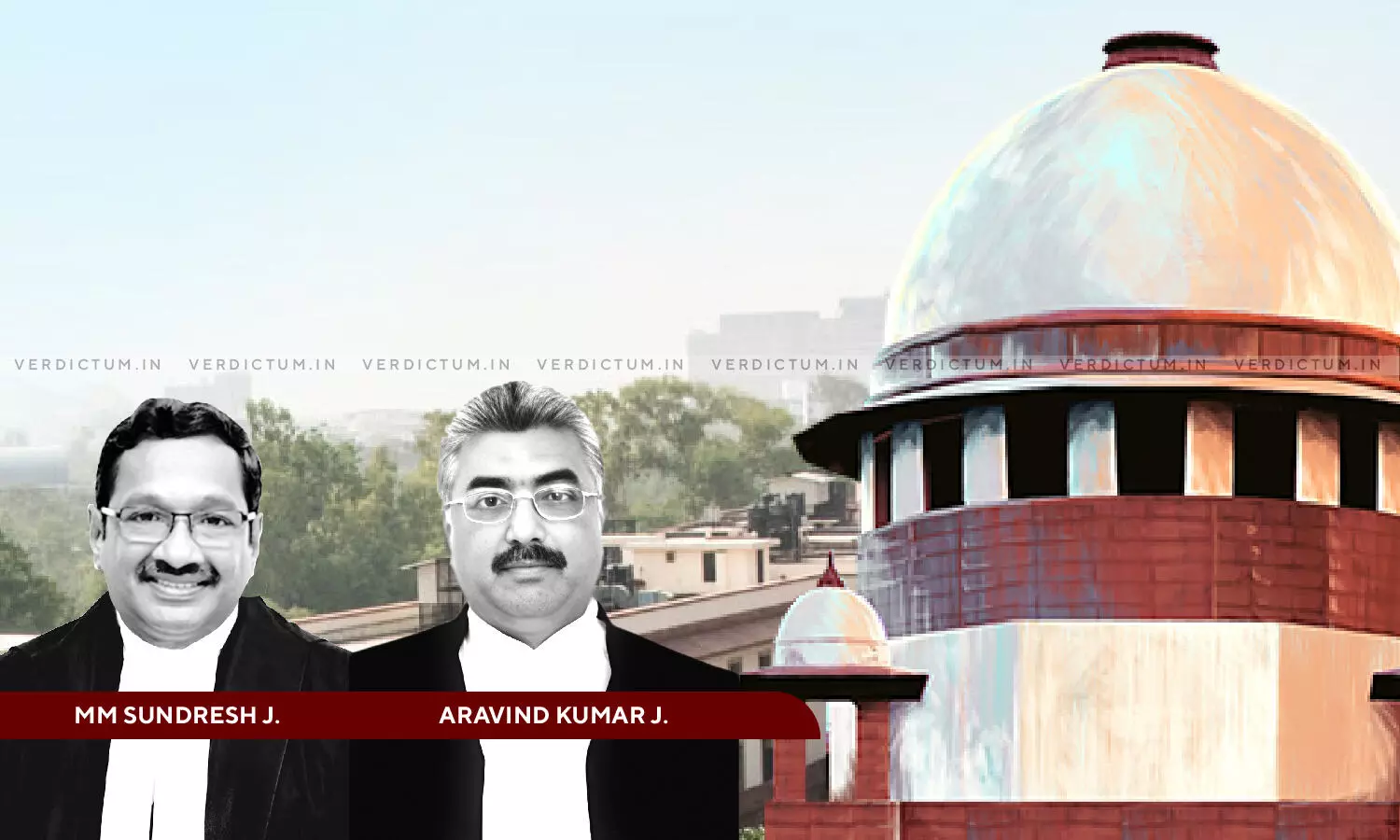
Court Must Be Cautious In Cases U/s 149 IPC As Witnesses Tend To Include Many Persons, Principle Of Removing Chaff From Grain Should Be Adopted: Apex Court
 |
|The Supreme Court, while setting aside the order of conviction in a murder case, has observed that in a case involving Section 149 of the Indian Penal Code, 1860, the Court will have to be extra cautious as there is a tendency by witnesses to include many persons.
The Court also held that when witnesses implicate all the accused, the principle of law to remove the chaff from the grain will have to be adopted and not the principle governing falsus in uno, falsus in omnibus.
The Bench of Justice MM Sundresh and Justice Aravind Kumar observed, “From the aforesaid analysis, we find that the appellants are liable for acquittal. While dealing with the case involving Section 149 of the IPC, the Court will have to be extra cautious as there is a tendency to include many persons. This is exactly the approach adopted by the Trial Court. In fact, even the High Court rendered acquittal as against Accused No.12 and Accused No.13 on the aforesaid basis…The principle governing falsus in uno, falsus in omnibus does not have an application in Indian Law. However, when witnesses implicate all the accused persons, the other principle of law with respect to removing chaff from the grain will have to be adopted.”
Senior Advocate Basavaprabhu S. Patil appeared for the Appellants whereas AAG Muhammad Ali Khan and Senior Advocate Anand Sanjay M. Nuli appeared for the Respondent.
The Appellants filed the appeal being aggrieved by the judgment by which they were convicted for the major offence punishable under Section 302 read with Section 149 of the Indian Penal Code,1860 (“IPC”) among others.
It was the specific case of the prosecution that there was a prior enmity between the deceased on the one hand and Appellants 1 and 2 on the other. The deceased and Appellant No.1 were brothers and Appellant No. 2 was the son of Appellant No. 1. The dispute was with respect to the property allotted for the maintenance of the mother of Appellant No. 1, who died thereafter. The deceased was travelling in a jeep. He was intercepted and thereafter attacked by the Appellants. The son of the deceased was the informant of the FIR.
The Trial Court acquitted Appellant No 1, 12 and 13 but convicted Accused 2 to 11.
The Court held that the trial Court by giving cogent reasons seriously doubted the presence of the eyewitnesses as PW-7, being the sterling witness, turned hostile. Further, the Investigating officer had not chosen to examine some of the eyewitnesses who were deposed for the first time before the Trial Court and the conduct of some of the witnesses was taken note of by the Trial Court as the FIR was given by the son of the deceased who is PW-1, who is admittedly not an eye witness.
The Court observed, “The evidence of some of the witnesses was discarded by the Trial Court after having found them untrustworthy. Special reference has been made on the evidence of PW-2 who himself was having a criminal background and it is the specific case of the prosecution that he made his presence before the Police Station to execute bail bonds, thereafter went to the place of occurrence by way of chance witness…After a thorough analysis, the Trial Court rendered the order of acquittal against all the appellants…The High Court once again re-appreciated the evidence. Despite finding certain contradictions, it held that some of the witnesses speak about the presence of the appellants as against Accused No.1 namely, PW-2, PW-3 & PW-5 and therefore they should be convicted. However, the High Court did not consider the reasoning of the Trial Court in rendering acquittal.”
The Court also remarked that the trial court had undertaken an exhaustive job by considering the evidence available on record but the High Court did not choose to consider the reasons adopted by the Trial Court and therefore no finding was recorded as to how the Trial Court was wrong.
Therefore, the Court set aside the impugned judgment considering the Trial Court had rendered an order of acquittal leading to the strengthening of the presumption in favour of the Appellants.
Cause Title: Mahantesh & Ors. v. State of Karnataka
Appearances:
Appellants: Senior Advocate Basavaprabhu S. Patil, AORs Ankolekar Gurudatta, Anirudh Sanganeria, Advocates Samarth Kashyap, Korada Pramod Kumar, Shivkumar, Venugopal Meesala and Jayasheela Y.J.
Respondent: AAG Muhammad Ali Khan, Senior Advocate Anand Sanjay M. Nuli, AORs V. N. Raghupathy, D. L. Chidananda, M/S. Nuli & Nuli, Advocates Manendra Pal Gupta, Omar Hoda, Uday Bhatia, Eesha Bakshi, Kamran Khan, Suraj Kaushik, and Akhila Wali.